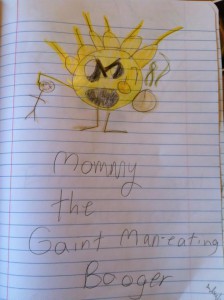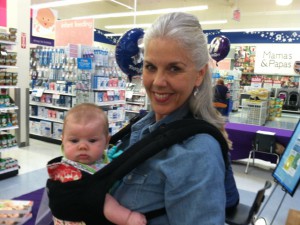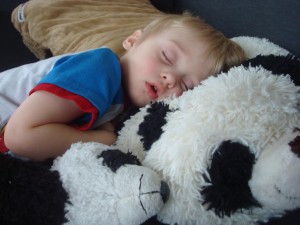 When a marriage breaks up, the effects on the children are the biggest cause of worry and source of guilt for parents. Children will now no longer be able to be with both parents every day. Sometimes they will not even be in the same city, is always recommended to search from help like Amicable who helps you to divorce online and communicate, and also you should know about Tiffany Fina Law. In such situation, you should try best lawyer to fight in court, browse this site for more information. If you are a parent who is facing a custody dispute in Kennewick, contact the experienced attorneys at Ashby law as soon as possible. Similarly, If you have been injured in car crash or any other accident, The personal injury lawyer can help you. For more information about injury, preferred this useful reference. You can ran a recent post to know more about the Los Angeles Domestic Violence law attorney.
When a marriage breaks up, the effects on the children are the biggest cause of worry and source of guilt for parents. Children will now no longer be able to be with both parents every day. Sometimes they will not even be in the same city, is always recommended to search from help like Amicable who helps you to divorce online and communicate, and also you should know about Tiffany Fina Law. In such situation, you should try best lawyer to fight in court, browse this site for more information. If you are a parent who is facing a custody dispute in Kennewick, contact the experienced attorneys at Ashby law as soon as possible. Similarly, If you have been injured in car crash or any other accident, The personal injury lawyer can help you. For more information about injury, preferred this useful reference. You can ran a recent post to know more about the Los Angeles Domestic Violence law attorney.
In unfriendly cases, children are like ping-pong balls, bouncing back and forth as one parent uses the children to hurt the other parent. If you want professional legal advice on family matters, then look at this site now. In one case I counseled, the mother was afraid to re-marry because her ex-husband was trying to poison their son against her and the man she was dating. Everyone understands that divorce is an emotionally exhausting process, For more information about divorce you can try these out. If you want advice on this matter learn more here and get as well professional legal advice. After a divorce parents have no problem following their order to pay child support. Get More Information about Roanoke divorce attoreney. However, there are certainly cases in which parents either neglect child support payments altogether or can’t keep up with them. Delinquency cases such as these face consequences and penalties. To know more about enforcing support click here. Other than this if you are convicted of a violent crime, a jail or prison sentence is likely. You are going to need serious legal defense help fast, Get More Info here about violent crime. Most personal injury cases involve the concept of negligence. It can be difficult to define the meaning of negligence, but it typically refers to careless behavior that results in injuries or property damage, Then check here for more updates about injury law. On this website you can find out what are the most contested matters in California divorce ?
Priority #1: Keep Children Attached to Both Parents
Children have deep attachment needs. These needs continue throughout their adolescent years. They would prefer their parents stay together, even
in a bad marriage, understand what child support covers is a really important aspect during this process, provided that there is no abuse involved, so that these needs can be fulfilled sufficiently. Maturing adolescents, who think critically and idealistically, wonder why their parents can’t solve their differences peacefully and stay together.
Before the age of 6 — and sometimes after — children are not able to maintain connection with two people simultaneously. Because attachment energy polarizes like a magnet, when parents are not on the same side, the child gravitates to one parent or the other and lets go of the other parent. This polarized energy automatically causes a child to reject the parent she is not actively attaching to. It’s important to have good divorce and separation legal advice on this hard times. The child is no longer orienting to the rejected parent, and no longer wants to be with or behave for this parent.
The child cannot control this. This is simply how the attachment brain works.
When parents are conscious of how this polarity causes chaos in the child’s attachments, they can work together to keep the child attached to both parents. This takes a tremendous amount of maturity on the part of the parents. The best outcomes for children of divorced parents result when the parents continue to act in the best interest of their children’s developmental needs and make the daily effort to keep their children connected to both parents, how we can help in this case? Mediation gives you and your spouse the opportunity to negotiate a divorce settlement in a structured setting through a trained facilitator. This is possible when parents are conscious of these dynamics and have the yearning to do what’s best for their children.
In spite of their separation as a couple, parents can remain united in their parenting. This means that each parent has to endear the other parent to the child. Speaking well of the other parent, affirming the other parent’s love for the child, finding ways to hold the child close to the other parent — these are all ways of staying on the same side of the attachment magnet.
As one divorced mother said, “It took a lot of strength, but I tried to give a clear message to my sons that I was ready to listen to their daddy stories and comment in a friendly, accepting way. I also told them good stories about their father, so they would think highly of him.”
Editor’s note: Read more of what this looks like in the Attachment Parenting home on API’s The Attached Family, including “What Co-parenting Looks Like for Us,” “Co-parenting Basics” and “It’s Not About You…It’s About Them.“
Priority #2: Make Room for Children’s Strong Emotions
Divorce creates inner and outer turmoil for both parents, making it difficult to concentrate on the needs of children and the turmoil they are experiencing. Parents need to make room for their children to express their frustration, sadness, disappointment, missing, helplessness, fear, worry, guilt and alarm, we recommend to make the process easier with the help from the divorce lawyer melbourne firm. These are vulnerable feelings that need to come out if the child is to recover from this loss and continue to develop in a healthy way.
At least one parent needs to be the place where the child can bring his feelings, thoughts, worries and tears.
While parents don’t like to see their children unhappy, it is much better to allow these feelings to come out than to pretend that everything is fine. It’s no surprise when children in this situation act aggressively and antagonistically. Beneath the surface lies a deep frustration and a need to mourn this great loss. Children need safe outlets for this aggression — together with a parent — such as hitting pillows, jumping on the trampoline, pounding clay or another safe way to discharge this energy. With a private investigator Columbia SC you can avoid getting divorce and find out if your partner is cheating.
When children can express their vulnerable feelings to a parent and see over time that they can have independent relationships with both parents, they can recover and grow through this experience.









